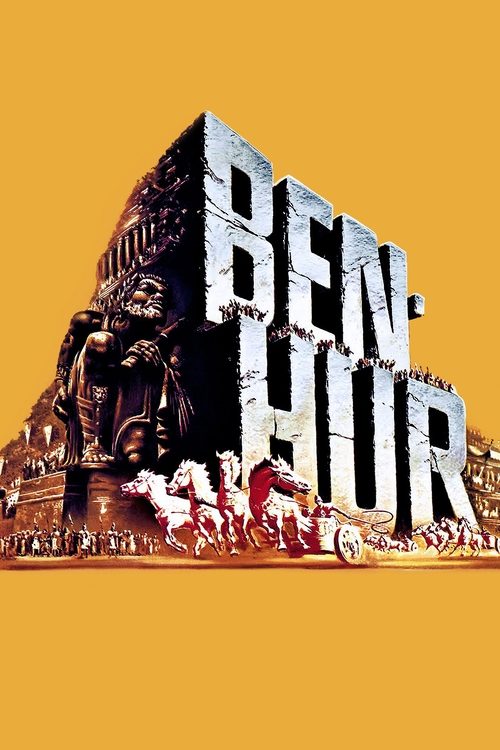
Title: Ben-Hur
Year: 1959
Director: William Wyler
Writer: Karl Tunberg
Cast: Charlton Heston (Judah Ben-Hur), Stephen Boyd (Messala), Hugh Griffith (Scheich Ildirim), Jack Hawkins (Quintus Arrius), Haya Harareet (Esther),
Runtime: 222 min.
Synopsis: In 25 AD, Judah Ben-Hur, a Jew in ancient Judea, opposes the occupying Roman empire. Falsely accused by a Roman childhood friend-turned-overlord of trying to kill the Roman governor, he is put into slavery and his mother and sister are taken away as prisoners.
Rating: 7.9/10